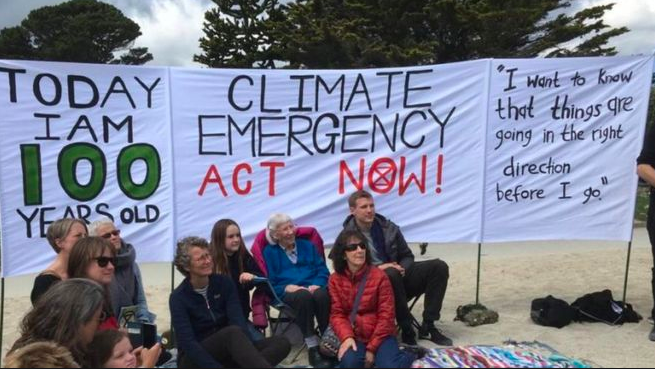
Photo: BBC.com
The New York Times reported on a new study published last week that found that older people are “significant contributors” to climate change because energy consumption increases with a person’s age, but also have experienced observable climate changes in their lifetimes. Meanwhile, The Washington Post found that many state and local politicians are putting the Green New Deal (GND) label on their own proposals to halt the climate crisis because the GND is so popular with young voters, even though the Sunrise Movement (the youth organization whose protests sparked the proposal) often pushes back on these proposals saying they don’t go far enough.
Why This Matters: These two news reports, in a nutshell, encapsulate the climate change generation gap. Older people have been the cause of greenhouse gas emissions that resulted in the climate crisis. They are also continuing to add to the problem because of their increasing energy use. The confluence of an aging population and an increasingly warm climate will likely expand the scope of the impacts, challenging the supply and demand of energy for the older population. And as the inheritors of the problem, young people are anxious for the sweeping changes represented by a so-called Green New Deal, even if the policies behind the label are not the most extreme versions of the GND proposal. Meanwhile, older Democrats are less enthusiastically behind any proposal labeled as a GND, even though they are the ones who can be the most certain that climate change is real and already happening because they have lived long enough to witness the changes themselves.
Energy Use Goes Up With Age: Usage was lowest among young adults, who typically occupy smaller households, according to the study. Even when the researchers controlled for income and housing types, they found the same energy usage trends held true, the only thing that varied the results was geography — they found that “energy consumption in warmer regions becomes really elevated for the older group.”
The Fuzzy GND: Meanwhile, legislators seem somewhat comfortable with a more moderate and less defined set of policy ideas and proposals in order to ensure they appeal to a wide swath of the Democratic Party. The Post cites the fact that the energy committee of the AFL-CIO “lambasted” Ocasio-Cortez’s GND proposal as “not achievable or realistic.” But in Maine, state legislators behind the GND there have sought the buy-in of labor unions early when drafting their own respective plans and proposals on the climate change.
June 3, 2019 » #GreenNewDeal, climate change, Harvard College, oceans

